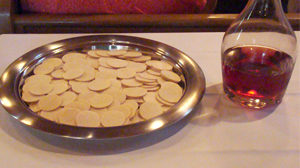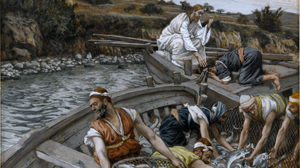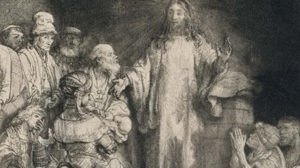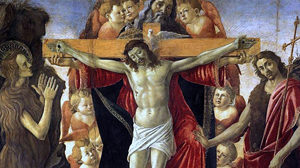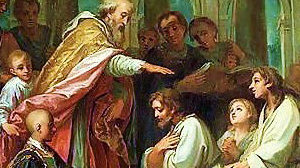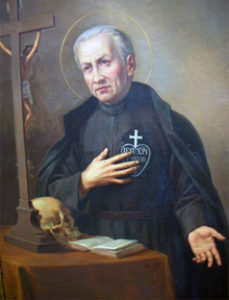Colossians 1:15-20
Psalm 100
Luke 5:33-39
Reflection:
Fasting & Feasting: Towards A Change of Heart
The “good old” Scribes and Pharisees: today’s Gospel continues the saga of their confronting Jesus with legalistic formalism…and so little heart! “Your disciples don’t fast and pray…yours eat and drink.” Detailed regulations rather than helping a neighbor in distress…or even rejoicing with the Bridegroom.
Jesus met this issue head on and wanted to show that Love is the essence of religion, that regulations are valid only if God’s purposes are served. Jesus asked more of his disciples: to follow his example, and love God with one’s whole being, and to love one’s neighbor as He did — a much more demanding life response than a fasting from food and drink! A new cloak…a new batch of wine…
As contemporary disciples, we are invited to think “outside the box”. We’ve moved beyond the Baltimore Catechism days; the Second Vatican Council has opened the “windows” of the Church. Pope Francis is inviting us to see life differently. The Spirit is alive in our midst! The Church is a community of believers! Our liturgical prayer invites and requires our full and active participation! Our Baptism calls everyone to a life-long discipleship / involvement in the Church, fulfilling their particular vocation! Our faith life is more than what you do (or don’t) eat or drink. A new cloak…a new batch of wine…
No doubt we seek to grow day by day; we need God to open our hearts in both our fasting and feasting – to help us change and grow. As members of the Passionist family, we prayerfully ponder our lives and that of our world. What are our basic life values? Today’s quest for power, or money, or material goods, or popularity: do we go along with the crowds? How do we “love” with Jesus Crucified?
May God open wide our eyes and our hearts, to see the treasure of our faith, along with the blessings and hard realities of daily life. Together, in the words of Psalm 100, we give thanks to God, and bless God’s name! God’s kindness and faithfulness embraces us all!
Fr. John Schork, C.P. is the local leader of the Passionist community in Louisville, Kentucky.

